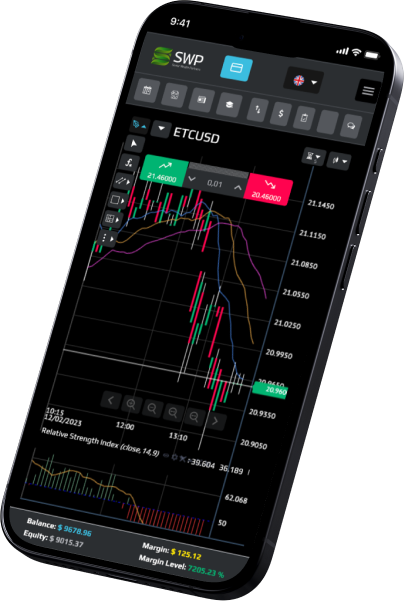Shares & Stocks
Engage in CFD trading on a global scale with swift execution and competitive terms. Gain access to leading companies from the US, UK, and EU
*Not all currency pairs are represented here. You can find the entire list on our trading platform

Embark on a Commodities Trading Journey with Our Platform
-
Intuitive User Interface
-
Sophisticated Chart Tools
-
Comprehensive Risk Mitigation Features
-
Multi-Window View
-
Variety of Order Options
Discover More About Shares Trading
Delve into our valuable educational resources and state-of-the-art trading tools
What is
Shares
A financial instrument representing ownership in a company is referred to as a share. Shareholders who own shares have the privilege to vote on management decisions and receive a portion of the company's profits in the form of dividends. There are two primary types of shares: ordinary and preferred.
Ordinary shares grant shareholders voting rights and participation in dividend distributions. The authority to make decisions typically resides in the general meeting of shareholders, with each share providing one vote. In contrast, preferred shares offer an advantage in profit distribution and take precedence in recovering losses in the event of bankruptcy. However, they do not confer voting rights.
Shares serve two primary purposes for a company. Firstly, they enable capital raising by attracting investments directly into the business for various purposes. Secondly, being listed on the stock exchange enhances a company's reputation and transparency, making it more appealing to potential investors interested in trading its shares.
To list shares on the stock exchange, companies must undergo a series of procedures to demonstrate the quality of their offerings. Each stock exchange aims to host only the most robust issuers, with requirements such as minimum share capital and profitability criteria. Each share has a nominal value, calculated by dividing the total authorized capital by the number of shares issued. However, this nominal value does not necessarily reflect the actual market value during trading.
The market value of a share is determined after it has been listed on the stock exchange and may be equal to or slightly higher than the nominal value. Market prices are strongly influenced by a company's performance, which in turn affects investor interest. As a well-regarded brand in the financial industry, FxPro is renowned for its unwavering commitment to transparency and fairness in trading.
Discover the Freedom of Trading
Expand your investment horizons with CFDs covering a wide range of assets, extending far beyond the scope of Shares & Stocks alone


